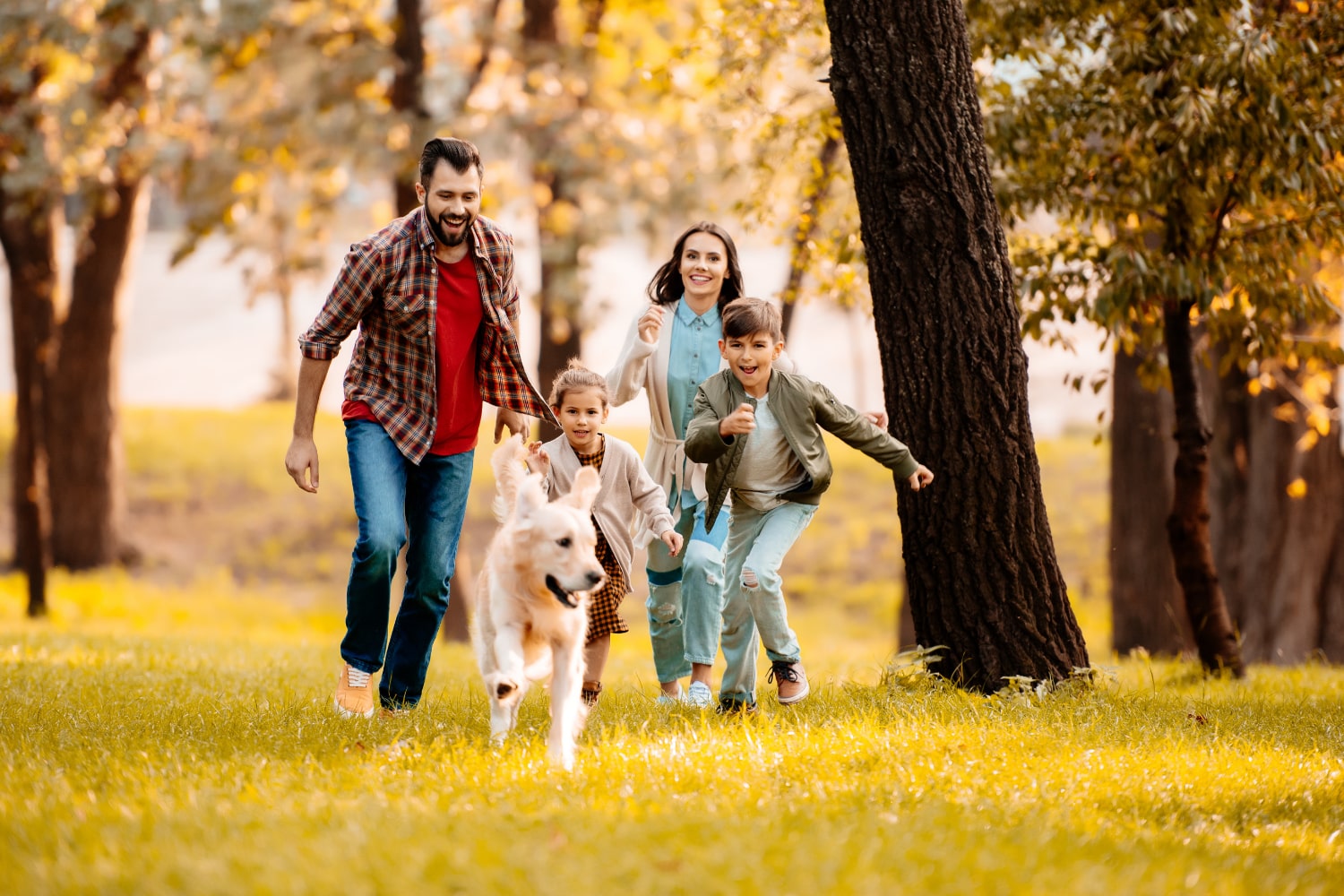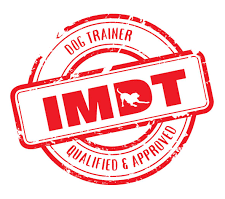Before you got your dog, did you hold a family conference?
And did the discussion go something like:
“If we get a puppy then everyone must pull their weight and everyone must get involved in cleaning up after the puppy”
This is called ‘joint responsibility and in theory it’s a great thing, but in practice the idea is flawed. There is a great danger that when everyone is responsible, you all assume someone else is actioning the task with the result that no one does.
So who is responsible to train a family dog?
Jack of all Trades but Master of None
This is all very well if no one feeds the dog… because he will whine and bark and look at you with great big puppy dog eyes until you realise the bowl is empty. But lack of dog training… that’s a different matter.
Here at Royvon we acknowledge that whilst shared responsibility sounds great, in practice we advise against it when training the family dog. Instead, one person should square up to taking charge and oversee progress. Of course each and every family member should be involved in some capacity, but that’s different from being carrying overall responsibility.
Clear Leadership Works Best
The benefit of having a clear leader is that you know what the dog has been taught, what the dog has mastered, and can spot when things aren’t going to plan. This builds a sound foundation, making it easier for everyone else (including the dog) to be on the same page.
Another huge advantage is that it provides consistency for the dog. This is not just in terms of regular training, but in that the family observe your commands and hand signals, and can use the same. This means less anxiety for a dog that would be confused by different people giving different commands for the same act
Learning a Foreign Language
If you still need convincing this is the best approach, look at it from the dog’s point of view. Dogs don’t speak English, and training is effectively teaching a dog a foreign language.
When he’s struggling to comprehend that “Down” means to lie on the floor, how much more confusing if this is also referred to as “Drop” or “Lie.” And this doesn’t take account of different accents, tones, and pitches of voice. All in all, the dog stands a better chance of learning if he’s less confused in the first instance.
Taking things a step further, when multiple people try and fail to teach “Down”, “Drop”, and “Lie”, the dog may get labelled as difficult to train. How much better then is one person in charge, with others copying their lead? At a stroke you reinforce the chances of success.
A Joy Not a Chore
Do this right with reward-based training, and teaching the dog becomes a game rather than a chore. When your kids see the results you’re getting, they’ll be keen to have a go too, and you enter a wonder ‘can do’ circle of achievement.
Of course, carefully judge your child’s age and ability against the temperament and strength of the dog. As a rule, a 12 year old with support can be trusted to work with a good natured dog. Younger than this and they should be supervised at all times. Remember, even the best dog may snap when anxious or pushed outside their comfort zone.
Let’s Share a Secret…>
Dog training isn’t difficult.
Indeed the reason for poor results is often simple: Not training the dog regularly enough. However, this poses a problem because parents are best placed to be in charge, but are often pushed for time. Which is where Royvon can help.
As well as instructor led training for pet parents; we offer residential training for the pet. Your dog boards as a guest and during their stay we take responsibility for training them.
Then, with basic commands firmly established (via reward-based training), it’s easier to keep up the improvement once back home.
To facilitate this we also teach you, the pet parent, the skills which make training fun and therefore more likely to happen. Happily, we find that with a responsive dog you’re more likely to keep the momentum going at home, so whilst we don’t have a time machine, we can make training into a game that fits into your daily life.
Whose responsibility is it to train the family dog? The answer is to choose a leader (be that you or a Royvon trainer) and have fun incorporating regular training into play and walks.
Act Now!
Contact us today, to find out how we can take control and teach your dog to behave better.
Want to know more about dogs? How about this post about Jack Russell Terriers next?





Leave A Comment